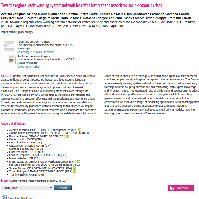Resumen
- Coffee rust epidemics that occurred in Latin America since 2008 have caused millions of dollars losses, job losses, and food security issues. In response to this crisis, Central American and Caribbean countries have been developing national surveillance systems to prevent future coffee rust epidemics. The European Union is supporting these initiatives through the PROCAGICA project led by IICA, which aims at increasing the national and regional capacity to prevent coffee rust and the resultant socio-economic crises. Indeed, pest and disease risk warnings and management recommendations may not be followed by producers' actions, meaning that outbreaks will impact producers' livelihoods. Responses must therefore also encompass the economic sphere. In addition, the project aims at promoting the establishment of a regional coordination to enable the exchange of information on epidemic risks between countries, as pests and pathogens can spread over large distances. The Central American early warning system network is based on harmonized national early warning systems coupling surveillance and monitoring, with expert knowledge and forecast models. The estimated risks of epidemic and socioeconomic crises will lead to actions specific to each country. The system will help launching general warnings and personalized recommendations to farmers. In this presentation we evaluate a range of modelling approaches for forecasting coffee rust and socio-economic crises associated to rust outbreaks, including Structured Equations Modelling of coffee rust, multi-criteria models, machine learning, agent based models and Bayesian models.
